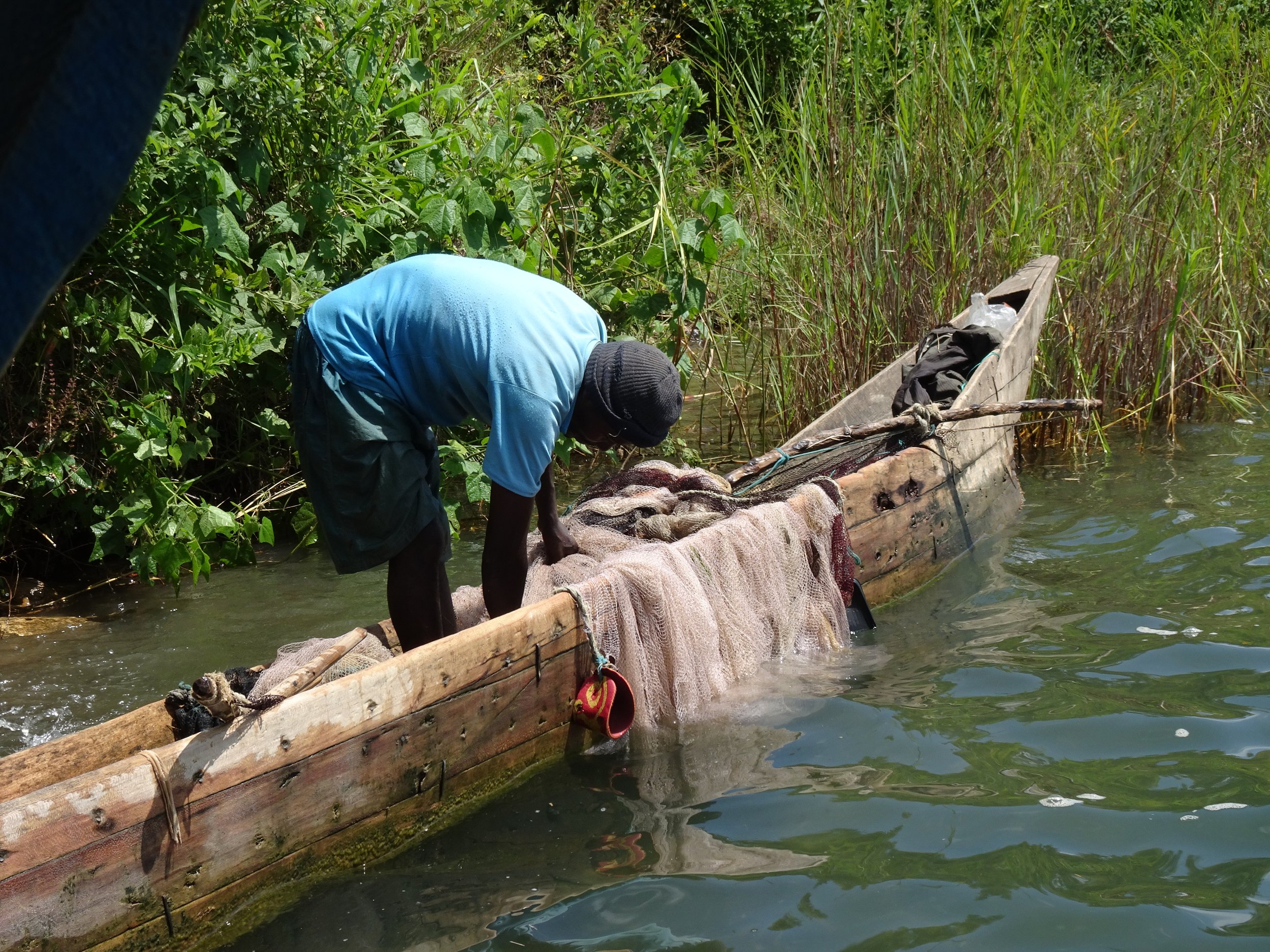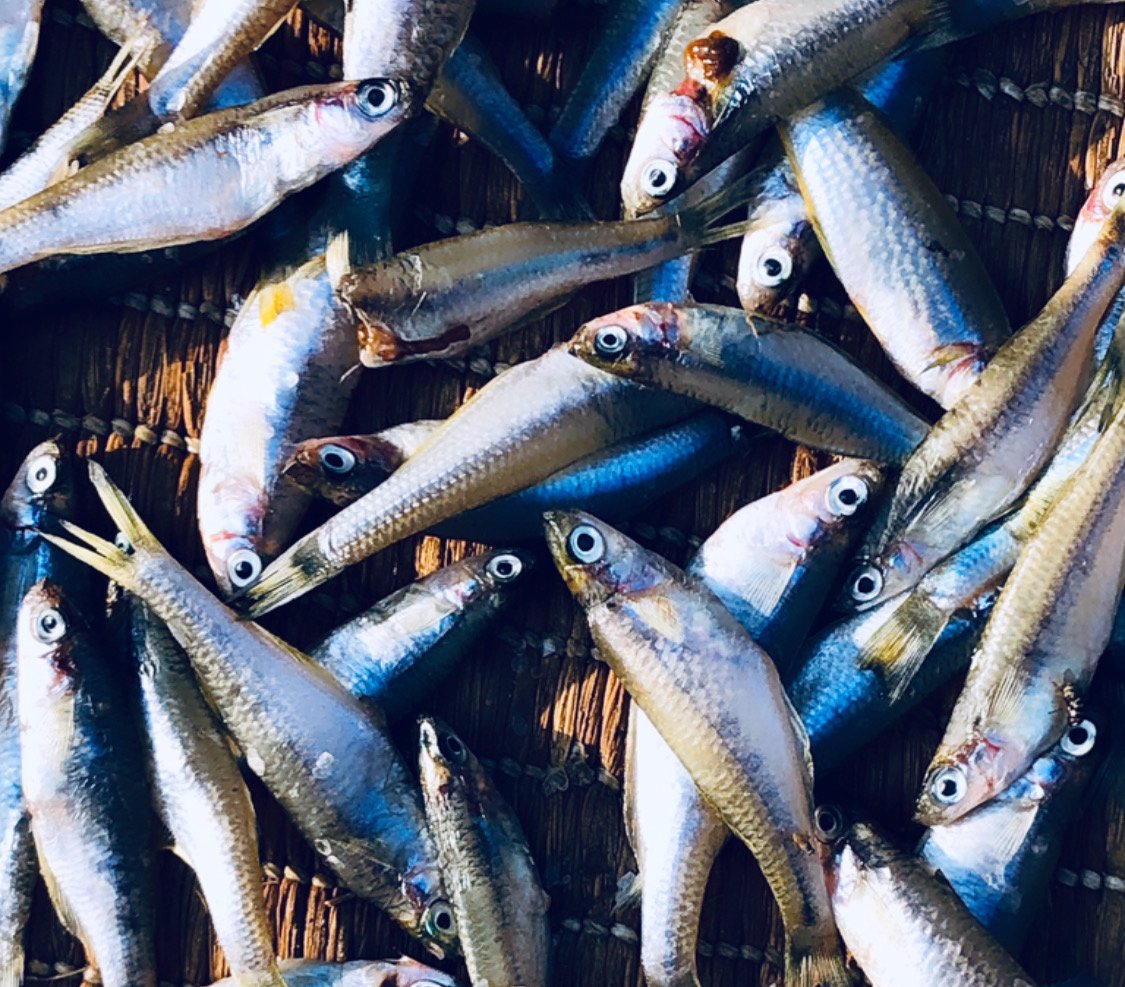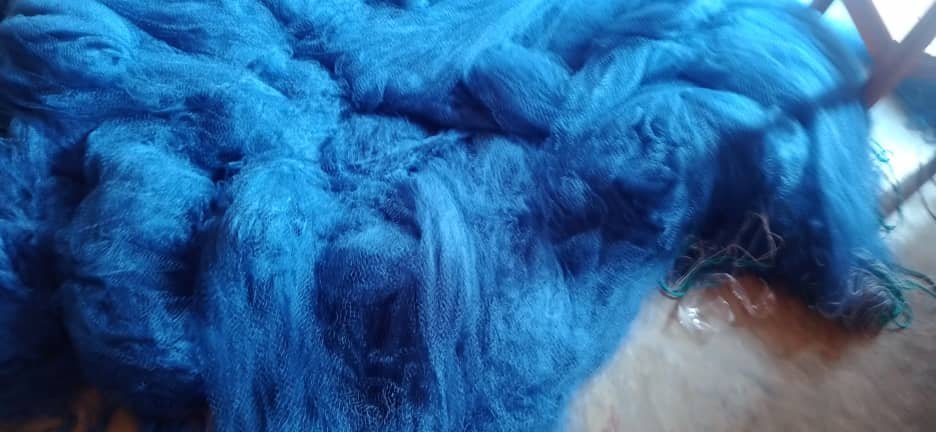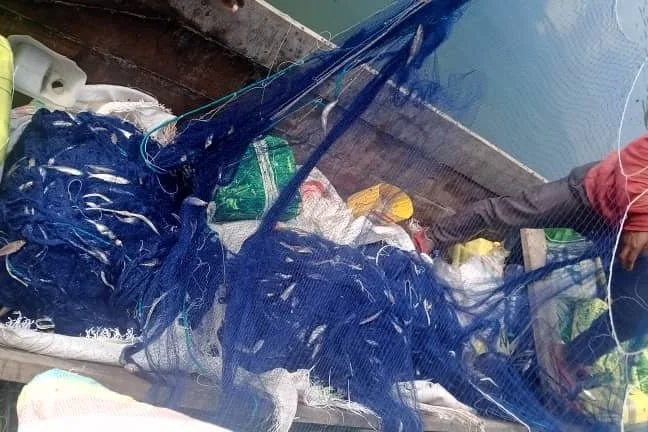
Fishing Projects
Fishing Projects
In a lakeside community, fishing is an important part of the village economy. Lake Kivu is rich in isambaza, small fish that taste quite like whitebait and a popular food for people who live on the lake shore. It is not surprising therefore, that VRUK has supported several fishing projects.
Fish Drying
In 2021, VRUK helped fund a new initiative to process and dry isambaza. In villages where electricity is scarce and unreliable, drying fish is a practical way to preserve them. VRUK provided an initial grant to buy a catch of fish and some drying stations. A local group of eight people are now sending dried fish to the capital Kigali, where they are sold in the market. They are also considering buying a grinding machine so as to be able to process the fish into fish meal and sell it at a higher price. One women in the cooperative said, “It has been wonderful for us to have our own money, separate from our husbands, that we can use as we choose.”
Members of the Fish Co-operative, with visitors including trustees Ann and Petronella
Boats, nets and toilets
Our NGO partners, GiFO, have been keen to find a way of generating income for the NGO itself, so that they could begin to sponsor development projects themselves. In 2023, VRUK agreed to fund the construction of two boats and the purchase of some fishing nets. GiFO plans to rent these out to villagers and use the income for further economic development.
To support this project, and to support the first stages of a tourism initiative, we also agreed to finance the construction of a toilet building at the lakeshore. It is hoped that people will “spend a penny”, and that this will provide additional funds for GiFO
The fishing boat is a dugoat, made by traditional methods
Nets are expensive, as they have to be bought at market.
A a catch of fish on the boat.
Landing a big catch of fish
Impact
Now the boats are bring used by people in Nyamasheke and Karongi districts.
Three fisherpeople rent the boats from GiFO and sell the fish to the cooperative for resale or for drying. Up to twelve villagers a day are paid in fish to remove the fish from the nets: they can either eat or sell these fish.
In addition, GiFO is using the rental income from the boats to support the feeding programme at teh nursery school
Here is Dorcas who says
“I appreciate the way GIFO think of all categories of people including giving opportunity to youth. During holidays I and more pupils work at the isambaza fishing project. I personally go to help on drying isambaza. my payment is 1,000 per day. at the end of holidays, I buy some school materials (notebooks, pens, shoes and hygienic materials). it helps my parents from spending more for me but leave them a chance to buy for my young brother and sisters.
I have bought 2 chickens and one of them is laying an egg per day. I sometimes sell eggs and get money.
Thank you GIFO. I would recommend more similar projects.”
Thomas, shown here with a bowl of isambaza, is now working as fisher. He says
Before this job of fishing at the GIFO Fishing project, there were some basic needs that I couldn’t satisfy by myself. My monthly income was maximum 10,000 rwfs per month. I couldn’t help my mum and two young brothers to pay for their school feeding. Now as a fisher at the project, since I started this job, I have bought two pigs (expect piglets from one of them in July), I pay for my two young brothers school feeding, one in P4 another in P6. Each month I give 10,000 to my mum to support her. My income per month was raised from rwfs 10,000 to 40,000 minimum.
I’m pleased to work here! God bless GIFO and their donors.









